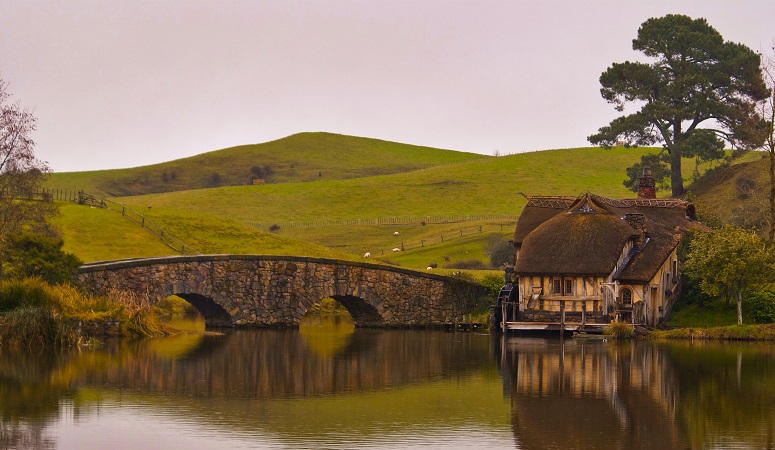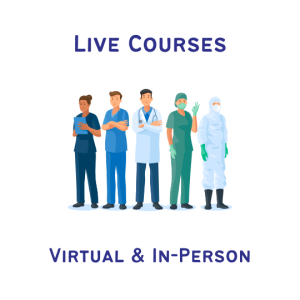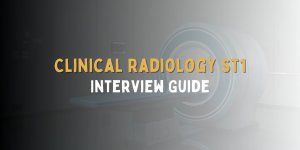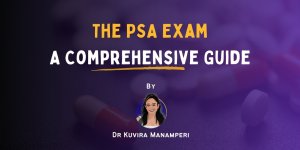
Published March 20, 2023 | Updated August 23, 2023
By Ruth Allan
Junior doctor who enjoys to travel
Thinking of working in New Zealand after FY2? Great decision!
New Zealand (Aotearoa) is an INCREDIBLE country with outrageously beautiful scenery, adventures for everyone and more beaches and mountains than you could possibly visit in a year. The laid-back culture, access to nature and adrenaline-fuelled activities, make it a fun and exciting place to live! Don’t forget the excellent coffee and wine too!
So, how do you make the dream a reality?!
This guide will help you navigate the path to setting foot in New Zealand as a new member of their healthcare team!
Affiliation Disclaimer: I have no affiliation with any New Zealand Health board, Recruitment Agencies or NZ Government work. This is a fully independent guide based on my experience of working in New Zealand. This information is up to date to the best of my knowledge, as per the publication date, however, is subject to change.
Kiwis have a few different terms for things than we do! Most you’ll pick up once you’re over there (and find yourself saying repeatedly!) but some are helpful to know when making applications.
Grades of Doctor
Other Acronyms
- DHB | District Health Board
- MCNZ | Medical Council New Zealand (the UKs GMC equivalent)
- MAS | Medical Assurance Society
- IRD | Inland Revenue Department
So how do you get yourself over there?!
How Do I Work in New Zealand as a Junior Doctor?
Applying for Jobs
There are a couple of different options available to find yourself the best job in the location you want in New Zealand!
Recruitment Agencies
Using a recruitment agency to apply for a job takes away the stress of having to send in multiple job applications.
Examples of recruitment agencies include Medrecruit, Triple0 Medical Recruitment and Mercury Recruit. There are many other companies providing these services!
Applying Directly to Hospitals
New Zealand has a website called ‘kiwi health jobs’. On this site, there are two particularly useful pages! One is a link to current vacancies. The other is a page with a list of DHB contacts. This includes email addresses for RMO Recruiters in each District Health Board.
Email your cover letter and CV to each of the Health Boards Recruiters that you want to work for.
In my experience:
My Advice
Sign up for a recruitment agency but don’t rely on them!!
Find the email addresses of the different RMO Recruiters at each DHB you want to work at and email them directly with your CV and cover letter.
Keep an eye out for current vacancies on the kiwi health job page but don’t wait for jobs to come up on this – be proactive and email the recruiters before vacancies are live. Sometimes there are gaps to fill which aren’t yet on the vacancies page! You can also look for non-traditional jobs, such as working on an oil rig or cruise ship.
What Jobs to Apply For
Should you apply for an SHO role or a non-training registrar role? This depends entirely on you!
If you feel comfortable acting as a CT1 equivalent, want to push yourself and make an impression on your CV then go for it! It is a very achievable role as an FY3 or above.
Many people feel that moving to a new healthcare system on the other side of the world is already a big step and so opt for the SHO role. This is also great! It allows you time to get settled, try out new specialities and enjoy New Zealand for the wonderful place that it is.
Once working in Aotearoa there were usually many opportunities to step up into a non-training registrar role if this was something you wanted. So if you opt for the SHO role but are worried you might want more of a challenge after you’ve settled in, fear not; There will probably be opportunities to step up after you’ve arrived.
Where to Apply for Jobs
New Zealand is split into the North and South Islands. Both are fabulous and have different qualities that make them exciting and interesting to live in.
Whichever one you end up working in, I would recommend taking the time to explore them both!
North Island
This is the ‘busier’ island so there are more jobs available here! The North Island is the warmer of the two islands, in the summer having temperatures of a toasty 20-30°C.

This doesn’t even include the vineyards, diving, mountain biking, lakes, hot springs and thermal activity!
South Island
This is the less populated island but arguably has the more dramatic and impressive scenery!
It is home to places such as Milford Sound, Aoraki (Mount Cook) and Franz Joseph Glacier. This means that the South Island has SO many options for amazing weekends away. Some examples are :

It is also home to the vibrant city of Christchurch which supplies a lot of jobs (and is at the forefront of much of the medical research and funding in NZ!)
Best Time to Apply For Jobs
Jobs are available most of the year due to staff leaving, sickness, maternity leave and so on. It is good to be proactive and send in your CV at any time! You never know when a vacancy might become available.
If there isn’t a job available straight away then the recruiter will hold onto your application for when there is!
- The academic year starts in January.
- Rotations for the PGY1s are January, April, July, and October.
- Rotations for SHO and registrars typically last 6 months – these usually coincide with the PGY1 rotation timings above.

Before You Move
Congratulations! You have got yourself a job in Aotearoa!
There are a few more things you need to organise before you catch that flight though!
Types of Visa
Accredited Employer Work Visa
This is the primary visa option available before you can move to Aotearoa in the first place. This can be given for up to 3 years (but may be shorter).
For this visa, you need a formal employment offer from one of the DHBs, and your visa will be linked to your employment contract – meaning if you quit your job you may also lose your visa.
This can take up to 2 months to be granted, so start the application as soon as you have your employment offer! Your employer or recruitment agency will usually work with you to help get your application sorted. I found it to be a relatively stress-free and straightforward application.
Residency Visa
If you arrive in Aotearoa and decide you love it and are never going to leave, you can then apply for a residency visa! The “Work to Residence” visa requires full-time employment in a Tier 2 Green List role, and for you to have worked in NZ for 24 months.
If you already have your heart set on a permanent move, many medical roles are on the Tier 1 Green List and are eligible for a “Straight to Residence” visa.
Working-Holiday Visa
Alternatively, if you finish your contract but decide you’re not quite finished with Aotearoa, you could apply for a working holiday visa.
This is a good option if you want to do some intermittent locum work or just travel around for a while. You cannot have a permanent job offer while you are on this visa though!
You may have the option while on a working holiday visa to pursue side hustles while locuming during your time in NZ, such as medical writing, expedition medicine, or medical education.
Medical Examinations
All visa applications for longer than 12 months require a medical examination and a chest x-ray. Some people may require medicals for visas of less than 12 months if they have spent a lot of time in countries with a high prevalence of tuberculosis.
There is advice on the government’s immigration website about how to go about getting the appropriate medical examination. In the UK it is not always that easy to find the correctly accredited doctor so again, sort this out earlier rather than later!
Cost of Moving
There are a few upfront fees that you will need to pay to get yourself set up in Aotearoa.
Be prepared to use your pounds for the first few weeks whilst you set up bank accounts, sort an IRD number, and complete the first fortnight of work!

Before You Work
Medical Council Registration – MCNZ
You will need to apply for provisional ‘general scope of practice’ registration with the MCNZ before you start work. This is the equivalent of registering with the General Medical Council in the UK.
Your DHB will assign you a clinical supervisor who will monitor your progress and provide a supervisor report to the MCNZ after a minimum of 6 months. If this all goes smoothly then you will be switched to a full ‘general scope of practice’ registration.
You will need to pay for the MCNZ registration (see ‘Cost of Moving’). Often the DHBs will reimburse you for this after starting work, so be sure to ask your recruitment administrator about this!
Medical Indemnity Insurance
A lot of health boards have their own indemnity insurance cover that you can sign up for, so it is worth asking your recruitment administrator about this BEFORE you start work. Otherwise, there are a few external companies which you can sign up for!
Usually, the health board insurance is free to you but check this with the DHB you are working at! You will have to pay for external insurance cover.
Tax Registration – IRD Number
This is your national tax number. Apply for this early!!!!!!
You can’t open a bank account or get paid without it. Moving to a different country can take an initial hit on the finances, so be sure to get this sorted!
Other Organisations to Notify
Before you move, there are a few places that you need to inform of your move, including:
- The GMC
- Student Finance
- HMRC
- Your bank
- (You might want to tell your partner/family/friends too but that’s up to you!)
This is not a complete or exhaustive list, but just a few recommendations!

Once You’ve Started
Joining a Union
When you start work you will be asked to join one of the unions, either the RDA (Resident Doctors Associated) or STONZ (Specialty Trainees of New Zealand).
Each has different agreements with employers about terms such as your rota, shift lengths and pay. In short, if joining STONZ you can expect higher pay, but may be asked to work longer hours. The RDA has more protected hours but slightly lower pay. This could change through re-negotiations however, so have a read through the policies yourself for the most up-to-date information before you sign up!
Locum work
Once you have a full MCNZ licence, and if your visa allows it (ie. is not tied to your contract), you could start working as a locum doctor after your permanent contract finishes. This can be done through direct contact with hospital administrators or through a locum agency.
Locum work can be a great way to see Aotearoa as often they pay for your travel costs, accommodation and obviously the hours you work!
MAS Retirement Saving Scheme
Sign up for this when you start work!
It is the equivalent of a pension scheme, however, if you leave the country for good you can access all of the money you have accumulated! You pay a percentage of your pay cheque into the scheme and your employer will match it.
When you come to finish your time in New Zealand simply request the money with proof that you are permanently emigrating out of New Zealand, such as a one-way flight ticket. Easy!

Life in New Zealand as a Doctor
Salary
What should you be expecting to take home each month?
Well firstly, you are paid fortnightly which is great! The wait for the next paycheck is dramatically reduced, meaning that the ‘end of the month’ squeeze isn’t so bad!
The average salary for a junior doctor in New Zealand is between $80,000 to $140,000 NZD (the equivalent to around £40,000 – £70,000).
The cost of living in Aotearoa was relatively equivocal to the UK, but it depends on your lifestyle!
Housing
There are a number of housing options when you move to Aotearoa, though there are some key differences to keep in mind compared to the UK!
Renting
Renting was easy enough and virtual viewings were easily set up over internet calls from the UK.
There are A LOT of UK doctors working in New Zealand, so using Facebook groups to find other junior doctors who are moving at a similar time, and renting a house together, is a popular option! It makes the whole ‘moving to the other side of the world’ thing slightly less daunting if you have a few friendly faces who are in a similar position and ready to move in with you.
The main note about renting a whole house is that most rentals in Aotearoa don’t come furnished or with ‘white goods’, as they typically do in the UK. If you find one offering this, jump on it! Otherwise, you’ll end up spending a lot of time scouring ‘Facebook Marketplace’ and ‘Trade Me’ for a cheap deal on a second-hand fridge and washing machine!
Flatting (House-share)
Flatting is the kiwi equivalent of finding a house/flat share. Rather than finding a property and furnishing it, you can find a room on Facebook groups in an already set-up house.
Often these are student houses, or groups of young professionals with a newly spare room looking for an additional flatmate. This means that even if your room isn’t furnished, at least the rest of the house should be!
This is also a nice way to make new friends outside of the hospital!
Hospital Accommodation
Some hospitals will offer hospital accommodation, though not all.
This varies in cost and luxury but can be a great option! It might be worth asking your recruitment administrator about this option.

Transport
When you move to New Zealand, you’ll not only have to make sure you can get to work, but also need to find a way to explore the beauty of your new home!
Buying a Car
Having a car is super useful in New Zealand! A lot of the hikes and nature parks aren’t very accessible by public transport, so buying a car gives you the ability to see so much more of the amazing country!
There are a couple of different ways of doing this. You can either buy new ($$$), second-hand (primarily off ‘Trade Me’ or ‘Facebook Marketplace’), or through a second-hand car dealership.
Should I Get a Camper?
Something else to consider is buying a campervan instead of a car. I would 100% recommend this option if the thought appeals to you! It means every weekend you can go exploring with total flexibility.

Aotearoa is full of ‘Freedom Camping’ spots where you can park up and sleep for free if you are in a ‘Self-Contained’ vehicle that’s certified. It’s a fun, easy and cheap way to see the very best bits of the country.
Campervans are hugely popular in Aotearoa so there are always second-hand ones being sold through websites such as ‘Facebook Marketplace’ and ‘Trade Me’. Most of the cities and towns have lots of parking options so I never had any trouble parking my van anywhere (with the exception of Wellington!!)
Public Transport
Public transport is also an option if you don’t want to buy a vehicle. There are good flight connections between most of the major cities and towns, making this an effective option to travel around.
A lot of the scenic hikes and activities will then require some other mode of transport to get to them. Usually, this requires hiring a car but there can also be public buses and trains.
Conclusion
Aotearoa is a beautiful country filled with the most amazing experiences. Hopefully, this guide helps you to find this out for yourself!
Good Luck!!!












